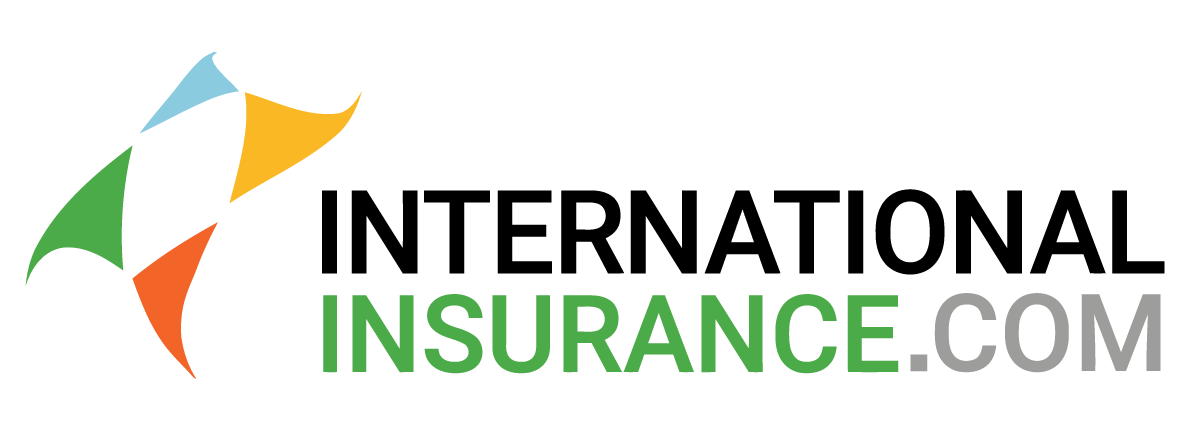In an increasingly interconnected world, the need for comprehensive healthcare coverage transcends borders. International health insurance plans offer a lifeline, providing peace of mind and financial security for individuals venturing beyond their home countries. Whether you’re an expat, a digital nomad, a frequent traveler, or simply seeking global healthcare access, understanding the intricacies of international health insurance is crucial.
This guide delves into the world of international health insurance, exploring its purpose, plan types, benefits, and key considerations. We’ll unpack the nuances of coverage options, costs, and claim processes, empowering you to make informed decisions about your global healthcare needs.
What is International Health Insurance?
International health insurance provides coverage for medical expenses incurred outside of your home country. It’s designed to offer peace of mind when traveling or living abroad, ensuring access to quality healthcare regardless of location.
Definition of International Health Insurance
International health insurance is a type of health insurance policy that covers medical expenses incurred while traveling or living outside of your home country. It offers protection against the high costs of medical treatment abroad, including hospitalization, surgery, emergency medical evacuation, and repatriation. These plans typically cover a wide range of medical services, including:
- Doctor consultations
- Hospitalization
- Surgery
- Emergency medical evacuation
- Repatriation of remains
- Prescription drugs
- Dental care
- Mental health services
Key Differences Between Domestic and International Health Insurance
International health insurance differs significantly from domestic health insurance in several key aspects:
- Coverage Area: Domestic health insurance typically covers medical expenses within the insured’s home country, while international health insurance extends coverage to medical expenses incurred worldwide or in specific regions.
- Network of Providers: Domestic health insurance plans usually have a network of preferred providers within the home country, while international health insurance plans often have a global network of healthcare providers, including hospitals, clinics, and doctors.
- Claims Process: The claims process for international health insurance can be more complex than domestic health insurance due to the international nature of the claims and the need to coordinate with healthcare providers in different countries.
- Premiums: International health insurance premiums are generally higher than domestic health insurance premiums due to the wider coverage area and the potential for higher medical costs abroad.
Types of International Health Insurance Plans
International health insurance plans offer a range of coverage options to meet the diverse needs of individuals and families living or traveling abroad. Understanding the different types of plans available is crucial for making an informed decision that aligns with your specific requirements and budget.
Types of International Health Insurance Plans
International health insurance plans can be categorized into three main types:
- Individual Plans: These plans are designed for individuals and provide comprehensive coverage for medical expenses incurred while living or traveling abroad. They typically offer a wide range of benefits, including inpatient and outpatient care, emergency medical evacuation, and repatriation.
- Family Plans: Family plans are tailored to families and cover multiple individuals under a single policy. They usually offer coverage for spouses, children, and sometimes even parents or in-laws. These plans provide the same benefits as individual plans but are extended to cover the entire family.
- Expat Plans: These plans are specifically designed for expatriates, individuals living and working abroad. Expat plans often include additional benefits tailored to the unique needs of expats, such as coverage for relocation expenses, language interpretation services, and repatriation.
Coverage Options in International Health Insurance Plans
International health insurance plans offer a variety of coverage options to cater to different needs and preferences. Some common coverage options include:
- Inpatient and Outpatient Care: This coverage covers medical expenses incurred during hospitalization and outpatient treatment, including doctor’s visits, surgeries, and medications.
- Emergency Medical Evacuation: This coverage provides transportation to a suitable medical facility in case of a medical emergency, either within the country of residence or to another country.
- Repatriation: This coverage covers the costs of transporting the insured individual back to their home country in case of a medical emergency or death.
- Dental Coverage: This coverage provides benefits for dental care, including checkups, cleanings, fillings, and extractions.
- Maternity Coverage: This coverage provides benefits for pregnancy-related medical expenses, including prenatal care, delivery, and postnatal care.
- Mental Health Coverage: This coverage provides benefits for mental health treatment, including therapy, counseling, and medication.
Key Features of International Health Insurance Plans
| Plan Type | Coverage | Cost | Eligibility |
|---|---|---|---|
| Individual Plans | Comprehensive coverage for individuals, including inpatient and outpatient care, emergency medical evacuation, and repatriation. | Varies depending on coverage options and individual factors. | Open to individuals of all ages and nationalities. |
| Family Plans | Coverage for multiple individuals under a single policy, including spouses, children, and sometimes parents or in-laws. | Typically higher than individual plans due to the increased number of covered individuals. | Open to families of all sizes and nationalities. |
| Expat Plans | Tailored to the needs of expatriates, including coverage for relocation expenses, language interpretation services, and repatriation. | May be more expensive than other plans due to the specialized coverage offered. | Typically available to individuals living and working abroad. |
Benefits of International Health Insurance
International health insurance offers a comprehensive safety net for individuals traveling or residing abroad, providing peace of mind and financial protection in the event of unforeseen medical emergencies. It is a crucial investment for anyone venturing beyond their home country, ensuring access to quality healthcare without the burden of exorbitant medical bills.
Peace of Mind While Traveling or Living Abroad
International health insurance alleviates the stress and anxiety associated with navigating foreign healthcare systems. It provides a sense of security, knowing that you have access to qualified medical professionals and facilities, regardless of your location. For instance, in the event of an unexpected illness or accident, policyholders can rest assured that their medical expenses will be covered, allowing them to focus on their recovery without financial worries.
Protection From High Medical Costs
Medical expenses can be significantly higher in some countries, particularly in developed nations with advanced healthcare systems. International health insurance acts as a financial buffer, shielding individuals from the potentially crippling costs of medical treatment. By covering the costs of hospitalization, surgery, medication, and other medical services, international health insurance plans ensure that individuals are not burdened with overwhelming medical bills.
Factors to Consider When Choosing a Plan

Selecting the right international health insurance plan can be a complex process, as various factors influence the best choice for your individual needs. To make an informed decision, you should consider several key aspects, ensuring the plan aligns with your health requirements, travel plans, and budget.
Coverage Level and Benefits
The coverage level and benefits offered by a plan are crucial aspects to consider. It’s essential to determine the level of coverage that best suits your needs. This includes factors such as the types of medical expenses covered, the maximum coverage limits, and the geographical scope of the plan. For instance, you may require a plan that covers pre-existing conditions or specific medical treatments if you have pre-existing health concerns. Additionally, consider whether you need coverage for routine checkups, dental care, or mental health services.
Coverage Options and Exclusions
International health insurance plans vary significantly in the types of coverage they offer. Understanding the specific coverage options and exclusions is crucial for selecting a plan that meets your individual needs and budget.
Coverage Options
Coverage options are the medical expenses that your plan covers. Common coverage options include:
- Hospitalization: This covers expenses related to inpatient care, including room and board, nursing care, and medical supplies.
- Surgery: This covers the costs of surgical procedures, including anesthesia and surgeon fees.
- Emergency Care: This covers expenses related to emergency medical treatment, including ambulance transportation and hospital visits.
- Outpatient Care: This covers expenses related to medical treatment received outside of a hospital, including doctor visits, diagnostic tests, and prescriptions.
- Dental Care: Some plans offer dental coverage, which may include checkups, cleanings, and restorative procedures.
- Mental Health Care: This covers expenses related to mental health treatment, including therapy and medication.
- Maternity Care: This covers expenses related to pregnancy and childbirth, including prenatal care, delivery, and postpartum care.
Exclusions
Exclusions are medical expenses that are not covered by your plan. Common exclusions include:
- Pre-existing Conditions: Many plans exclude coverage for pre-existing medical conditions, which are conditions that existed before you purchased the policy.
- Cosmetic Procedures: These are procedures that are not medically necessary, such as plastic surgery or hair transplants.
- Experimental Treatments: These are treatments that have not been approved by regulatory bodies.
- Routine Checkups: These are regular medical checkups that are not related to a specific health issue.
- Travel-related Expenses: Some plans exclude coverage for travel-related expenses, such as lost luggage or flight delays.
- War or Terrorism: Coverage may be excluded for injuries or illnesses related to war or terrorism.
Cost and Premiums

International health insurance premiums can vary significantly depending on a number of factors. Understanding these factors can help you choose a plan that offers the right coverage at a price you can afford.
Factors Influencing Premiums
The cost of international health insurance is determined by a variety of factors. These include:
- Coverage Level: Plans with higher coverage limits, such as those that cover more medical expenses or have lower deductibles, generally have higher premiums.
- Age: As individuals age, their risk of needing medical care increases, leading to higher premiums.
- Health Status: Individuals with pre-existing medical conditions may face higher premiums as they are considered a higher risk to insurers.
- Location: The cost of healthcare varies significantly around the world. Plans covering regions with higher healthcare costs tend to have higher premiums.
- Travel History: Frequent travelers may have higher premiums as they are exposed to a wider range of potential health risks.
- Plan Type: Different plan types, such as individual plans, family plans, or plans for expats, have different premium structures.
- Insurance Company: Each insurer has its own pricing model and underwriting practices, leading to variations in premiums.
Impact of Coverage Levels, Age, and Health Status
Coverage levels, age, and health status play a significant role in determining premium costs.
- Coverage Levels: A comprehensive plan with high coverage limits and low deductibles will typically have a higher premium than a basic plan with limited coverage.
- Age: Premiums generally increase with age due to the higher risk of needing medical care. For example, a 40-year-old individual may pay a higher premium than a 25-year-old individual for the same plan.
- Health Status: Individuals with pre-existing medical conditions may face higher premiums as insurers consider them a higher risk. For example, someone with diabetes may pay a higher premium than someone without any pre-existing conditions.
Typical Premium Ranges
It’s difficult to provide exact premium ranges as they vary widely based on the factors discussed above. However, here are some general examples of premium ranges for different plan types:
- Individual Plans: Premiums for individual plans can range from a few hundred dollars to several thousand dollars per month, depending on coverage level, age, health status, and location.
- Family Plans: Family plans typically have higher premiums than individual plans due to the increased coverage for multiple individuals. Premiums can range from several hundred dollars to several thousand dollars per month.
- Expat Plans: Expat plans are designed for individuals living and working abroad. Premiums can vary widely depending on the destination country and the level of coverage.
Claim Process and Procedures
Filing a claim for international health insurance is typically straightforward. The process involves notifying the insurer about the medical incident, gathering necessary documentation, and submitting the claim for review and payment.
Submitting a Claim
The process of submitting a claim for international health insurance typically involves the following steps:
- Notify the Insurer: Contact your insurer as soon as possible after a medical incident occurs. This could be done through their emergency hotline, online portal, or by phone. Provide details of the incident, including the date, time, location, and nature of the medical issue.
- Obtain Medical Documentation: Gather all relevant medical records, such as doctor’s notes, prescriptions, lab reports, and hospital bills. This documentation will be crucial for the insurer to assess the claim and determine the amount of coverage.
- Complete Claim Forms: The insurer will provide claim forms that need to be filled out with detailed information about the incident, the treatment received, and the expenses incurred. Ensure accuracy and completeness of the forms.
- Submit the Claim: Once the forms are completed and all necessary documentation is gathered, submit the claim to the insurer. This can be done online, via mail, or through a designated claim submission center.
Claim Processing and Payment
Once the claim is submitted, the insurer will begin the review process. This involves:
- Verification: The insurer will verify the information provided in the claim forms and the supporting documentation. This includes confirming the insured’s policy coverage and the validity of the medical bills.
- Assessment: The insurer will assess the claim based on the policy terms and conditions. This includes determining if the medical incident is covered, the extent of coverage, and the amount of reimbursement payable.
- Payment: If the claim is approved, the insurer will issue payment for the covered expenses. The payment may be made directly to the healthcare provider or reimbursed to the insured. The payment method and timeframe will depend on the specific insurer and the policy terms.
Reputable Providers and Companies

Choosing the right international health insurance provider is crucial for ensuring comprehensive coverage and peace of mind while traveling or living abroad. Several reputable providers offer diverse plans catering to different needs and budgets. This section will highlight some of the most respected international health insurance companies and their offerings.
Provider Comparison
Understanding the key features, strengths, and weaknesses of different providers is essential for making an informed decision. Here’s a comparison of some prominent international health insurance companies:
- Aetna International: Aetna International is a well-established provider offering a range of plans with global coverage, including medical evacuation, repatriation, and emergency medical expenses. Their strengths lie in their extensive network of healthcare providers and their comprehensive coverage options. However, their premiums can be relatively high compared to some competitors.
- Bupa Global: Bupa Global is another leading provider known for its comprehensive plans and strong customer service. They offer a wide range of coverage options, including chronic conditions and mental health support. Their financial stability and global reach make them a reliable choice for international health insurance.
- Cigna Global: Cigna Global is a global healthcare provider with a strong reputation for innovation and customer satisfaction. They offer a variety of plans with flexible coverage options and a focus on preventative care. Cigna Global also has a robust network of healthcare providers worldwide.
- IMG: IMG is a specialized provider focused on international health insurance. They offer a wide range of plans, including travel insurance and expatriate health insurance. IMG is known for its competitive pricing and comprehensive coverage, making them a popular choice for individuals and families.
- Allianz Worldwide Partners: Allianz Worldwide Partners is a global leader in insurance and assistance services. They offer a wide range of international health insurance plans, including individual and group plans. Allianz Worldwide Partners is known for its financial strength and global reach.
Financial Stability and Reputation
Assessing the financial stability and reputation of a provider is crucial before making a decision. Here are some factors to consider:
- Financial ratings: Look for providers with strong financial ratings from reputable agencies like AM Best or Standard & Poor’s. These ratings indicate the provider’s financial strength and ability to meet its obligations.
- Industry reputation: Research the provider’s reputation within the insurance industry. Look for positive reviews and testimonials from other customers.
- Years of experience: Consider the provider’s track record and experience in the international health insurance market. Longer-standing providers generally have a proven track record and a deeper understanding of the industry.
- Regulatory compliance: Ensure the provider is licensed and regulated in the countries where you plan to travel or live. This ensures they meet the necessary legal requirements and standards.
Tips for Finding the Right Plan
Navigating the world of international health insurance can feel overwhelming, but a structured approach can help you find the perfect plan for your needs. The key is to be proactive, compare plans thoroughly, and consider professional guidance.
Assessing Your Needs
Understanding your specific healthcare requirements is crucial before you start comparing plans. This involves considering your health history, travel plans, and lifestyle. For example, if you have pre-existing conditions, you’ll need a plan that offers comprehensive coverage for them. Similarly, frequent travelers may benefit from a plan with global coverage and emergency medical evacuation benefits.
International Health Insurance for Specific Groups

International health insurance plans cater to diverse needs, offering specialized coverage options for individuals and groups with unique circumstances. These plans are designed to address the specific healthcare requirements of expats, digital nomads, and students, among others.
International Health Insurance for Expats
Expatriates often require comprehensive healthcare coverage that extends beyond their home country’s borders. International health insurance plans for expats provide access to medical services worldwide, ensuring peace of mind during their time abroad.
- Expat health insurance plans typically cover a wide range of medical expenses, including hospitalization, surgery, emergency medical care, and routine checkups.
- These plans often include coverage for repatriation, which refers to the transportation of an insured individual back to their home country in case of a medical emergency.
- Some expat health insurance plans also offer coverage for pre-existing conditions, subject to specific terms and conditions.
International Health Insurance for Digital Nomads
Digital nomads, who work remotely and travel frequently, require flexible and affordable health insurance solutions. International health insurance plans designed for digital nomads provide coverage while they are on the move, ensuring access to medical care wherever they may be.
- Digital nomad health insurance plans often offer worldwide coverage, allowing individuals to travel and work without worrying about healthcare costs.
- These plans are typically designed to be budget-friendly, offering a balance of coverage and affordability.
- Some plans may include additional benefits specifically tailored to the needs of digital nomads, such as coverage for remote work equipment and liability insurance.
International Health Insurance for Students
International students studying abroad often need access to affordable and reliable healthcare coverage. International health insurance plans for students provide essential medical protection while they are pursuing their studies in a foreign country.
- Student health insurance plans typically cover a range of medical expenses, including hospitalization, emergency medical care, and routine checkups.
- These plans may also include coverage for mental health services, which is particularly important for students adjusting to a new environment.
- Some student health insurance plans offer additional benefits, such as coverage for travel and personal liability.
Future Trends in International Health Insurance
The international health insurance market is undergoing a dynamic transformation, driven by several factors that are shaping the future of the industry. These trends are impacting how plans are designed, how claims are processed, and how consumers access healthcare services.
The Rise of Telehealth and Remote Healthcare Services
Telehealth and remote healthcare services are gaining significant traction globally, particularly in the international health insurance market. This shift is driven by the increasing demand for convenient, accessible, and cost-effective healthcare solutions.
- Increased Accessibility: Telehealth allows individuals to access healthcare services from anywhere in the world, regardless of their physical location. This is particularly beneficial for expats, digital nomads, and travelers who may not have access to traditional healthcare facilities in their temporary locations.
- Cost-Effectiveness: Telehealth services often offer lower costs compared to traditional in-person consultations, reducing the overall cost of healthcare for both individuals and insurance providers.
- Convenience: Telehealth eliminates the need for travel and waiting times, allowing individuals to access healthcare services at their convenience. This is particularly important for individuals with busy schedules or limited access to healthcare facilities.
Technology’s Impact on Plan Design and Claim Processing
Technological advancements are playing a significant role in modernizing the international health insurance industry. Insurance providers are leveraging technology to streamline processes, improve efficiency, and enhance the overall customer experience.
- Digital Platforms: Insurance providers are increasingly adopting digital platforms for policy management, claim submission, and communication. These platforms offer a user-friendly interface, 24/7 access, and real-time updates, enhancing transparency and convenience for policyholders.
- Artificial Intelligence (AI): AI is being integrated into various aspects of the insurance industry, including risk assessment, fraud detection, and claim processing. AI algorithms can analyze large datasets to identify patterns and trends, enabling more accurate risk assessment and faster claim processing.
- Blockchain Technology: Blockchain technology offers secure and transparent record-keeping, which can be beneficial for managing health records and facilitating cross-border claim processing. Blockchain can also enhance data security and reduce the risk of fraud.
Last Point
The landscape of international health insurance is dynamic, with evolving trends and innovative solutions emerging. As you navigate this complex world, remember that choosing the right plan is paramount. By carefully considering your individual needs, exploring various providers, and seeking expert advice, you can secure the global healthcare coverage that aligns with your unique circumstances and aspirations.

